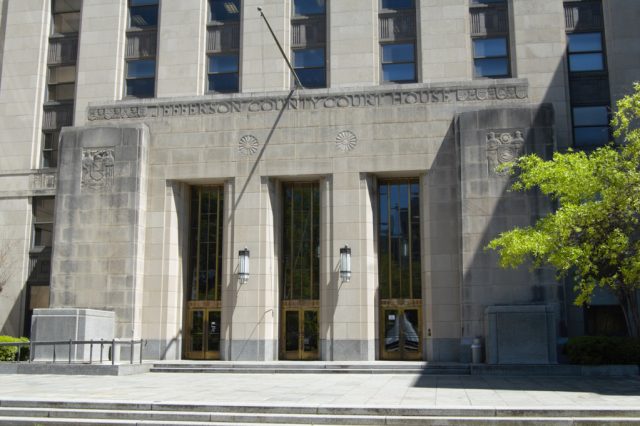
By Barnett Wright | The Birmingham Times
Nearly 30 years after the Cahaba River Society (CRS) and private citizens sued Jefferson County for permit violations, including unpermitted discharge of wastewater containing raw sewage into rivers and streams, the sides on Thursday reached an agreement to end a federal consent decree requiring rehabilitation of the county’s sewer system.
In 1996, a federal judge ordered the county to repair and rebuild its sewer system, after finding that county sewage polluted the Black Warrior and Cahaba Rivers and tributaries in violation of the Clean Water Act.
On Thursday, the groups filed a joint request to terminate the consent decree, which also included the Environmental Protection Agency. The settlement confirms that Jefferson County has met the goals for improving the system’s infrastructure, operations, and maintenance under the decree, according to officials.
The Federal District Court must approve the request before it is final.
“Our sewer system is one of the most important infrastructures that the county provides to both citizens and businesses,” said Commission President Jimmie Stephens in a statement. “We have been working diligently on reducing overflows, improving capacity, and ensuring that we are discharging clean water back into our creeks and rivers since I took office [in 2010].”
Beth Stewart, the retired Executive Director of the CRS, who worked with the county throughout the consent decree, said the county made tremendous progress to repair its sewer system that is “now light years ahead of where it was in the 1990s … Everyone in the county is benefiting from cleaner water quality in our creeks, rivers and neighborhoods because of Jefferson County’s hard work and creative approaches,” she said in a statement.
Jefferson County Attorney T. A. “Theo” Lawson and other county officials said, “the goal was not just to meet the requirements, but exceed them, for the health and welfare of our citizens … [we] worked very hard to meet and even exceed the requirements of the decree and to achieve this milestone.”
David Denard, Jefferson County Director of Environmental Services, said terminating the decree “is the culmination of significant effort by many county employees to improve our infrastructure …We have made remarkable progress in reducing overflows and improving water discharge quality throughout the region.”
The county has nine water reclamation facilities that serve about 600,000 citizens, including parts of Shelby and St. Clair counties. Since 1996, five of the county’s facilities and all the sewer lines leading to them have reached compliance and are no longer subject to the consent decree.
Thursday’s agreement would release the final four sewer basins serving communities in the Valley Creek, (including Shades Creek), Village Creek, Cahaba, and Five Mile Creek watersheds. The county manages more than 3,100 miles of sewer lines and treats more than 100 million gallons of wastewater per day.
The consent decree did come at a cost. The county began six years of massive borrowing for sewer repairs and used some of that money for new sewers not required under the consent decree. Soon most of Jefferson County’s sewer debt was tied up in several 2002-03 refinancing deals and the financial collapse of 2008 plunged the county’s debt to junk bond status; because of that and other financial woes the county commission in 2011 would file the then largest municipal bankruptcy in U.S. history. The county officially exited bankruptcy in 2013.
However, a benefit of the original sewer consent decree was the county’s investment of $30 million into acquisition and protection of open space lands along creeks and rivers in the county. This Supplemental Environmental Project (SEP), which redirects environmental fines from federal coffers into local projects, was one of the first and largest ever approved in the nation’s history.
The SEP led to the 1996 founding of the Freshwater Land Trust, which, to date, has since multiplied the county’s seed funding to build 129 miles of trails in Jefferson County, towards the Red Rock Trail System’s planned 750 miles, and conserve over 12,000 acres of land in Jefferson and 13 other surrounding Central Alabama counties.




